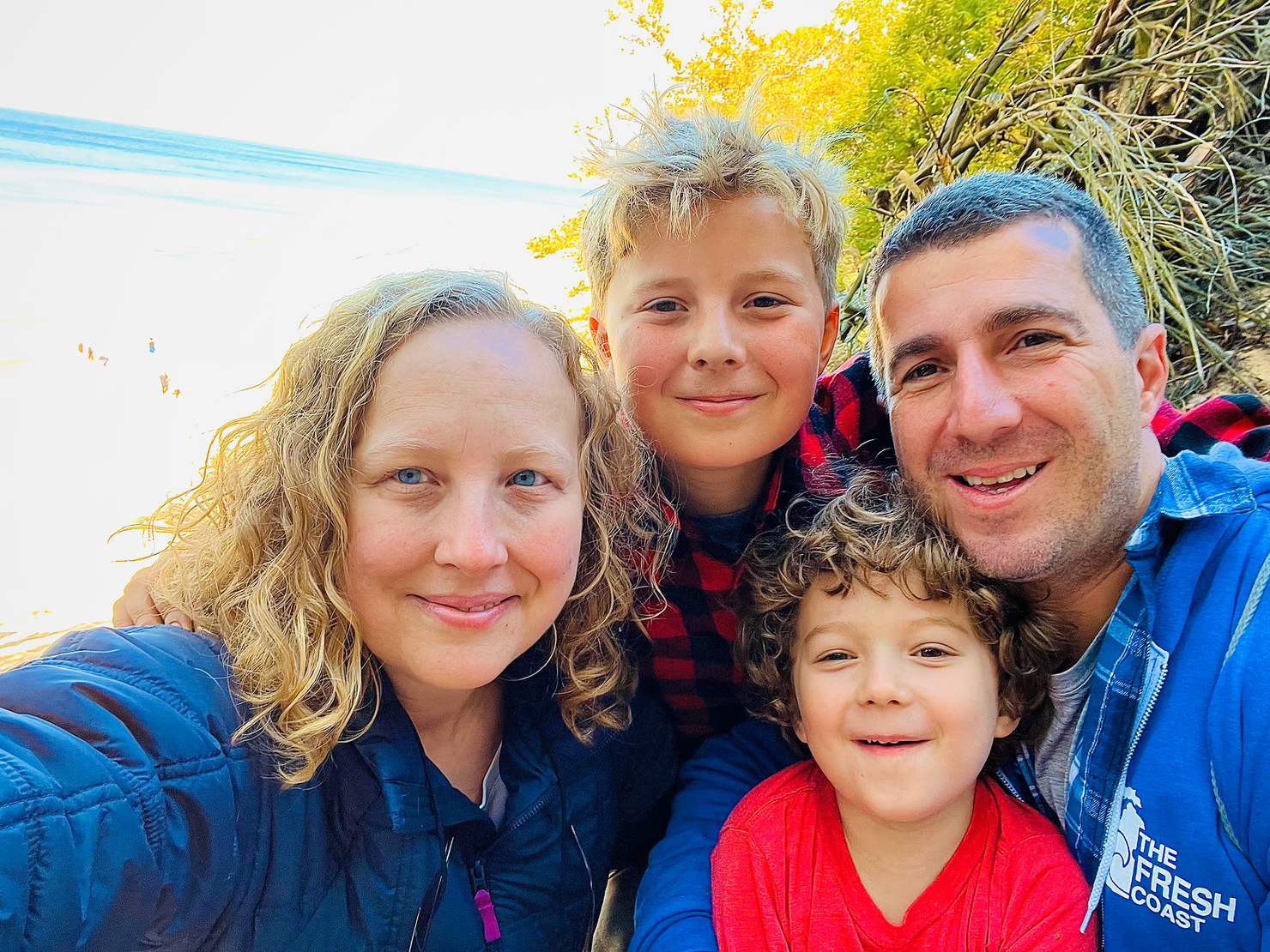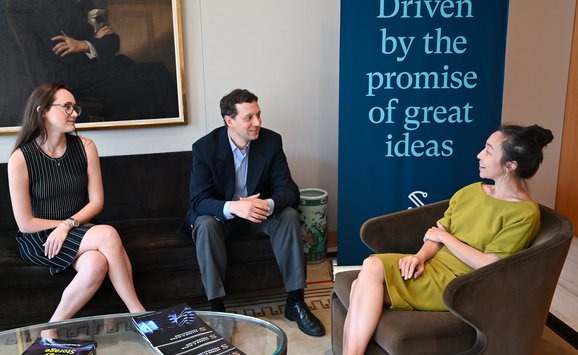In RFF’s Supporter Spotlight, we hear directly from donors about their commitment to issues in climate, energy, and the environment; how they make a difference; and why they support Resources for the Future—all in their own words.
Resources magazine recently spoke with Kate Barnes, Senior Program Officer for Climate Solutions at the MacArthur Foundation. Below are excerpts from the conversation, which ranged across topics like mining for critical minerals, centering equity in the search for climate solutions, and what gives her hope in the face of the climate crisis.
Resources magazine: Tell us about your personal interest in nature and the environment. How did those interests develop?
Kate Barnes: I grew up on an apple orchard in a farming town in Indiana. I spent a lot of time outside as a child, playing and working in our orchard and on our friends’ farms. We gathered apples, raised goats, and grew a lot of our own produce. My parents worked in medicine, and by the time I reached college, I knew that I wanted to study biology. But then I had an opportunity to support a research study in the Caribbean, looking at coral and fish diversity following a major bleaching event. That experience drew me to the environment instead of medicine.

Kate Barnes with her family
What excites you about working on climate issues at MacArthur, and the work you support at Resources for the Future (RFF)?
The climate crisis is an existential threat. So many aspects of our society have to change for us to solve this crisis, and achieving those changes feels impossible and overwhelming at the individual level. One of the reasons I love this work is because I get to support other people who care a whole, whole lot about solutions. It gives me a sense of community and hope that I might not have, otherwise. I like supporting RFF because the quality of the research it produces gives me confidence that I, and the communities that I care about, understand the most important dimensions of the crisis and the solutions.
Can you talk a bit about MacArthur’s environment and climate priorities? The foundation has been sunsetting its specific effort toward advancing strategies that mitigate climate change—what MacArthur calls its “Climate Solutions” strategy. How are those priorities evolving?
We have a focus on the United States and the energy sector with our climate work, so our thought partnership with RFF is based on those themes. Climate Solutions began in 2014, and it was conceived as a time-limited area of work that was meant to reduce emissions and ensure that the Earth stays below a 2°C temperature increase. The Climate Solutions strategy will wind down by 2026, and we may develop a new strategy around climate. But we’ll continue to focus on the whole spectrum of capital that can be deployed to address the climate crisis, including our investment portfolio.
What do you see as the value of the independent and nonpartisan research that RFF provides?
RFF’s value comes down to the fact that there are real tensions within the solutions to climate change. MacArthur’s strategy aims to center equity, which means having honest conversations about trade-offs: Take transition minerals like lithium, cobalt, and nickel, which are needed to electrify society and move away from fossil fuels. Mining could provide a lot of jobs, but the sector has a record of harms to the environment and human rights. Given that a lot of new sources of critical minerals in the United States are near or on Indigenous lands, the sector will have to improve how it works. How can we transition away from fossil fuels without repeating those harms?

Barnes in nature
I know I can rely on the work that RFF is doing on these issues. The topic of mineral mining is relatively new to me, so I’m having to educate myself about it to make informed decisions related to our funding. I trust RFF’s analysis and research to help me gain a balanced perspective on these tensions.
Finally, what makes RFF special? What do you think sets RFF apart from other organizations?
The high caliber of the research that RFF conducts stands out, and the fact that RFF uses that research to inform policy is important to us at the MacArthur Foundation. We also appreciate that almost every aspect of RFF’s research includes a robust environmental economics component, which we feel is unique. A lot of information out there focuses strictly on science or on a particular bit of policy. RFF does a really good job of making sure to involve economic analysis and connect its work to policy engagement.


Four Ways You Can Support RFF
- Give through our website: Visit www.rff.org/donate to make a one-time donation, or to set up a monthly recurring donation.
- Give through the mail: Send your check to Resources for the Future | 1616 P Street NW, Suite 600 | Washington, DC 2003
- Give through a donor-advised fund: Donate through a DAF account at a community foundation or financial institution to support RFF while receiving favorable tax benefits.
- Give through a will, trust, or gift plan: Include RFF in your estate plans to provide meaningful, long-lasting support.
Discover other ways to give at www.rff.org/donate/ways-giving or contact Ryan Sabot at [email protected]






